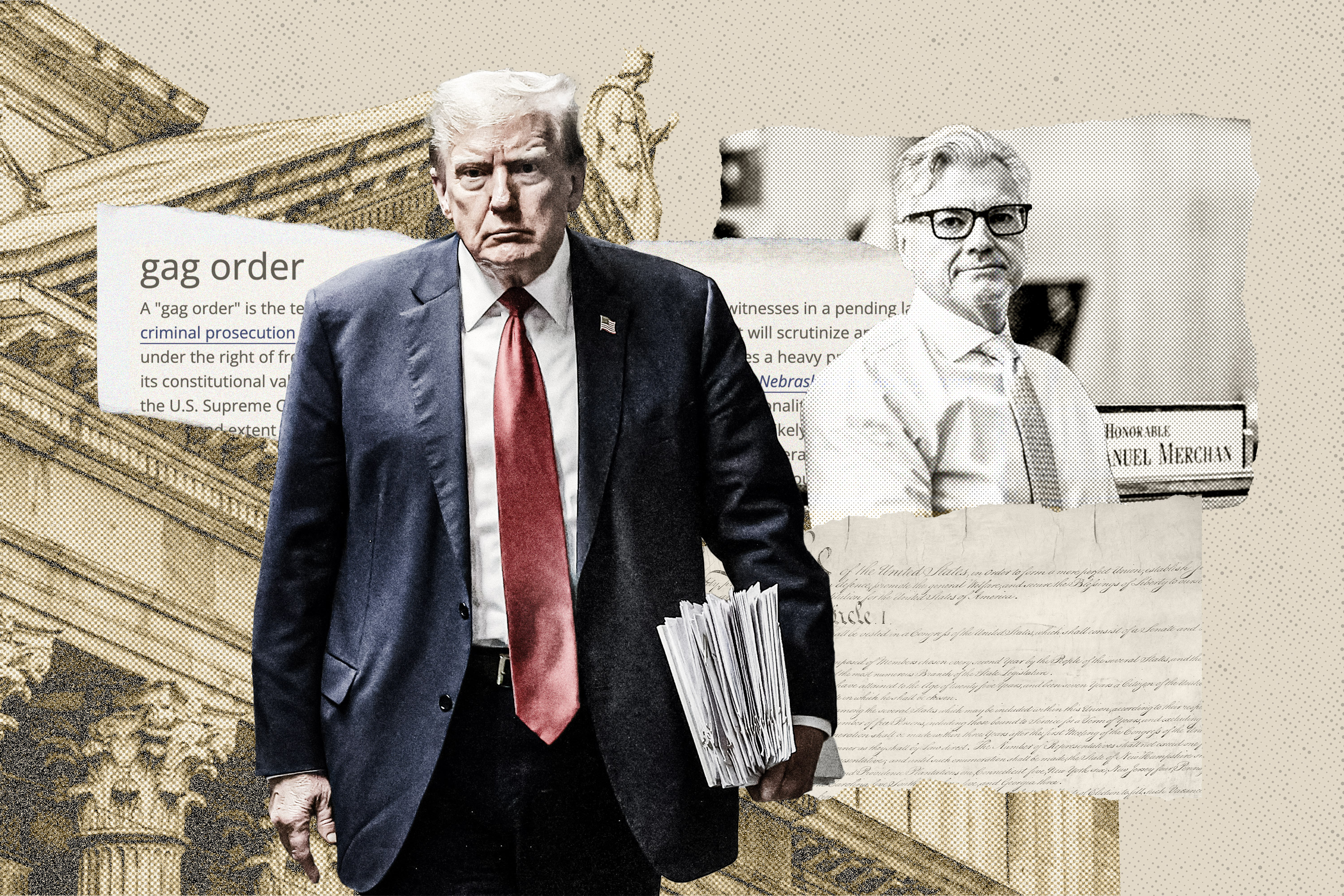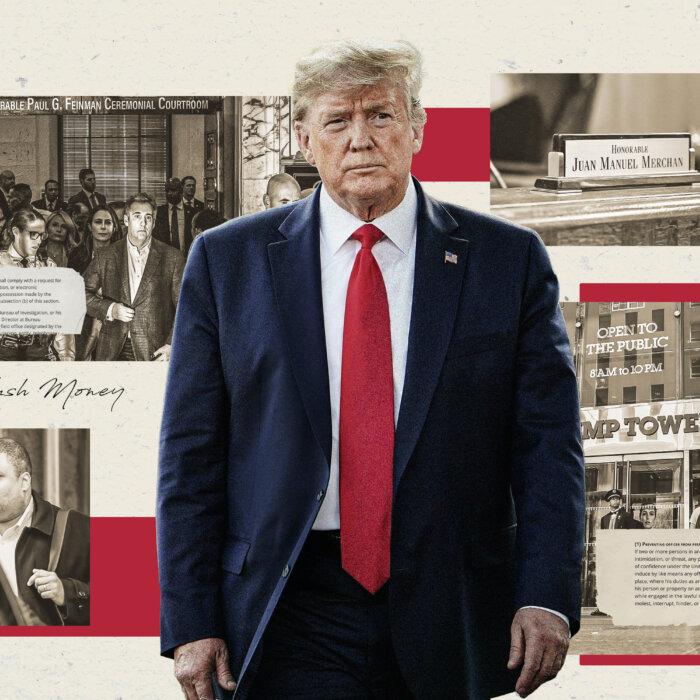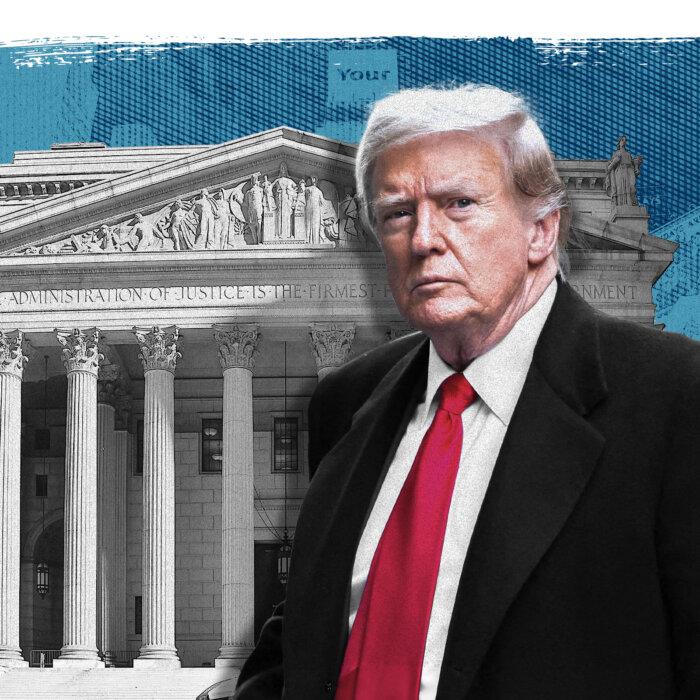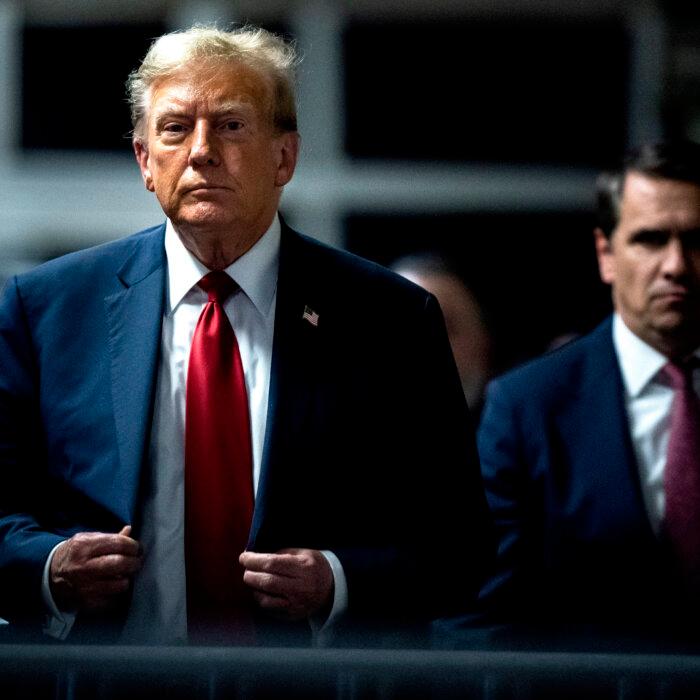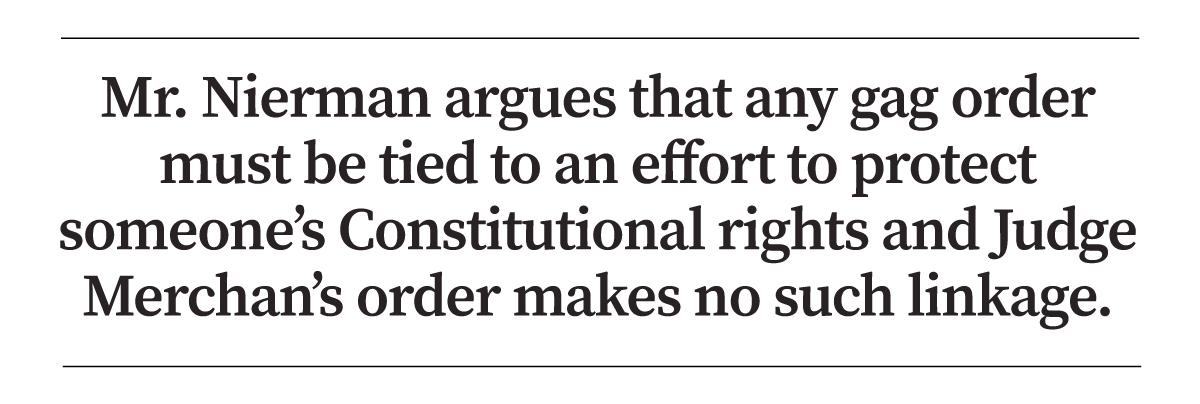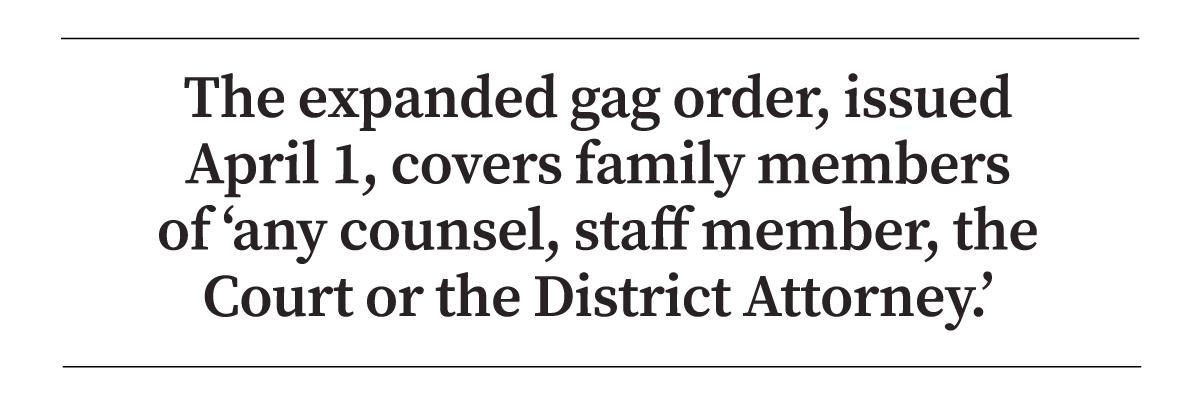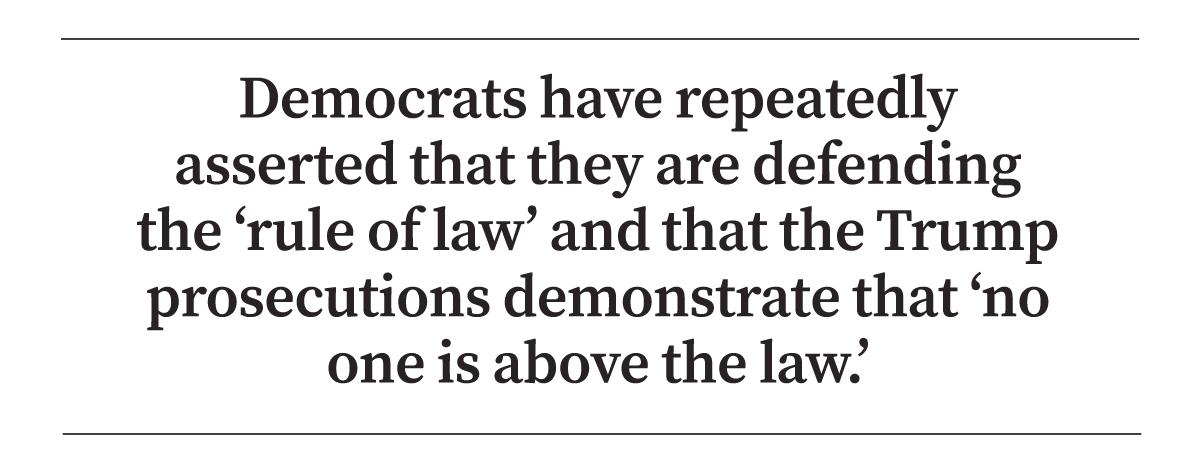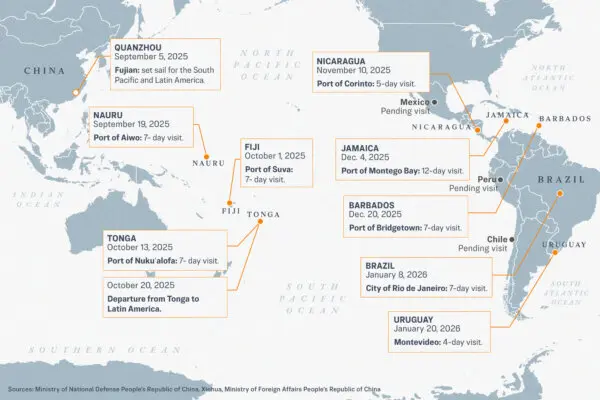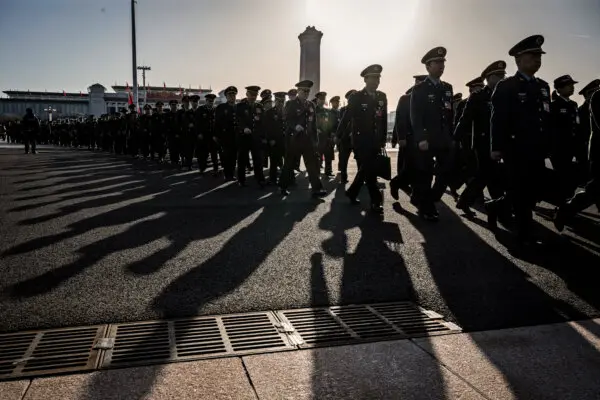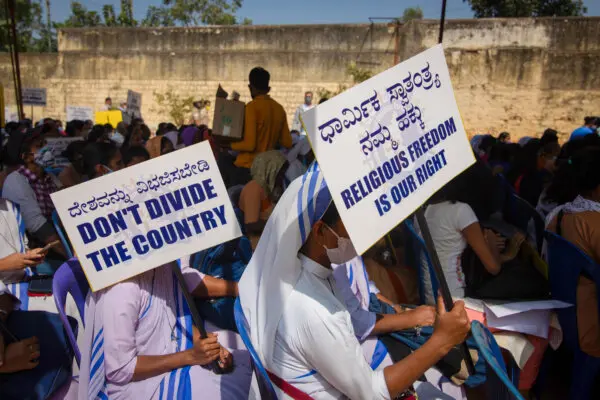His constant verbal jousting and social media rants spark cries of “I wish he’d shut his mouth!” from detractors and even from some of his own supporters.
But now a court has ordered former President Donald Trump to remain silent about most people involved in the criminal trial that began on April 15 in New York. Some lawyers call the order an unconstitutional infringement on free speech.
An appeal filed by President Trump’s lawyers is pending, and an independent New York attorney filed a challenge to the order on constitutional grounds.
But Judge Juan Merchan, acting justice of the New York Supreme Court, stands by his order. He heard allegations that President Trump violated the order during a hearing on April 23, and is set to issue a decision.
The gag order applies to a so-called “hush-money case” to muzzle one of the most outspoken public figures of the modern era, a man who founded his own social media platform so he could express himself freely.
Although Judge Merchan’s order targets President Trump, it triggers implications that are “so much bigger than Trump,” said legal scholar Mike Davis, who heads the Article III Project.
Mr. Davis sees a pattern of government officials infringing on the Constitutional rights of President Trump and other citizens, particularly conservatives or non-Democrats. “These are Republic-ending tactics” that could culminate in a courtroom-based “civil war,” Mr. Davis said, with Republicans and Democrats constantly waging a legal tit-for-tat.
In the dispute over President Trump’s gag order, free-speech rights are colliding with an election campaign and a criminal proceeding.
Legal analyst Mike Allen, an Ohio lawyer who has served as a prosecutor and judge, said, “The judge in this case is in a tough spot … He has to balance Trump’s First Amendment rights versus protecting the integrity of the criminal process.
“It’s compounded by the fact that you’ve got a former and perhaps future president of the United States,” Mr Allen told The Epoch Times. “And these facts are smack-dab in the middle of a campaign.”
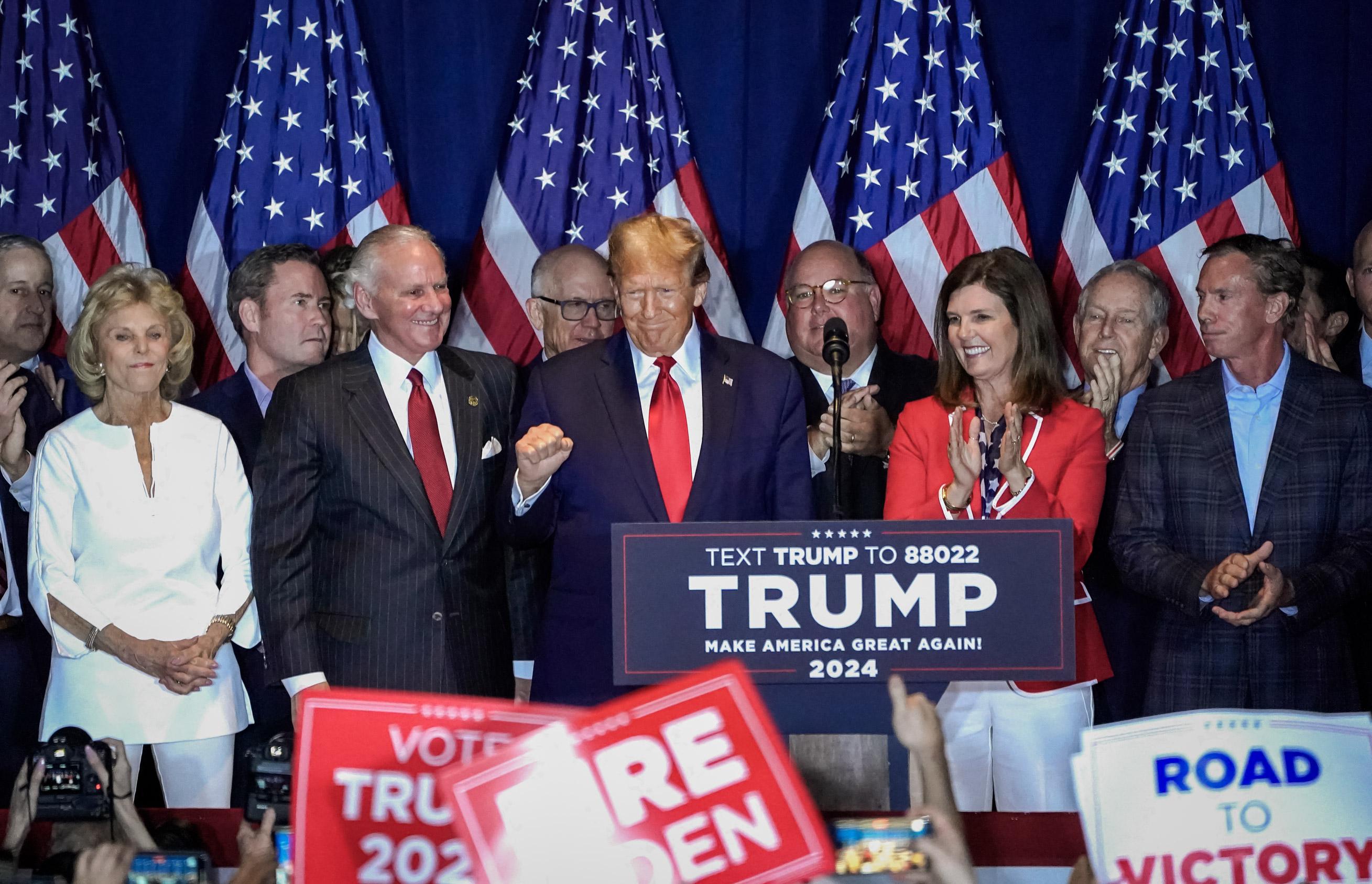
‘Dangerous’
Gag orders, which judges may use to restrict parties’ statements, are rarely used and have been upheld as constitutional if they are very specific. They almost always apply to both sides. But this order applies solely to President Trump and his team.The gag order, patterned after a federal one issued against President Trump in another case, still allows him to comment about the judge and Manhattan District Attorney Alvin Bragg, who is prosecuting the case.
President Trump has repeatedly lambasted the judge and prosecutor on Truth Social, a platform he launched in 2022 after other social media outlets banned or censored him.
Matthew Colangelo, a senior official in President Joe Biden’s justice department before he joined Mr. Bragg’s office in late 2022, sought the gag order.
The restrictions were needed because of President Trump’s “longstanding and perhaps singular history of using social media, speeches, rallies, and other public statements” to attack his perceived adversaries, Mr. Colangelo said.
In granting the New York gag order, Judge Merchan acknowledged President Trump’s right to free speech but said his remarks were not being made to defend himself. Rather, the judge interpreted the comments as “threatening, inflammatory, [and] denigrating.”
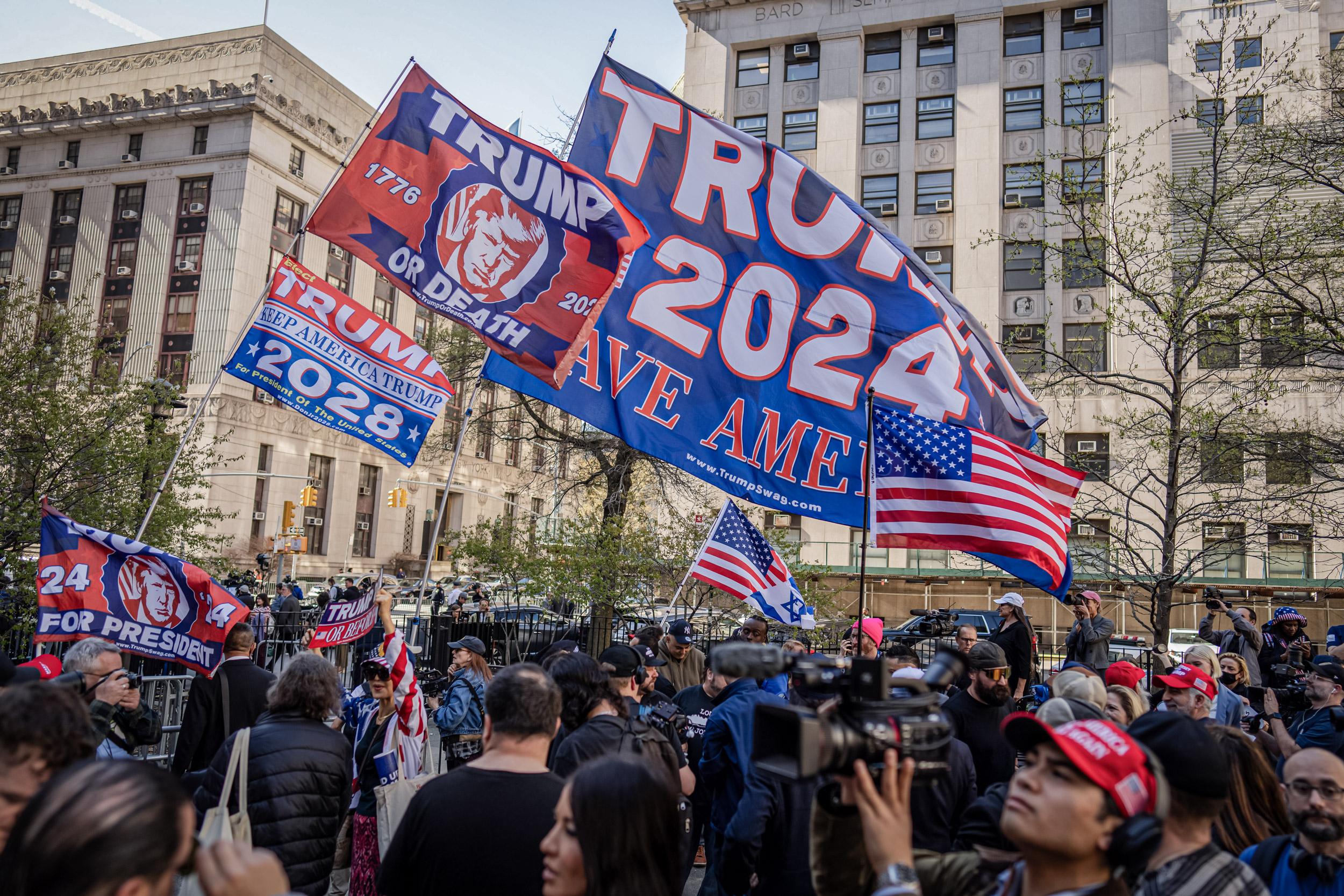
Mr. Nierman argues that any gag order must be tied to an effort to protect someone’s Constitutional rights. But Judge Merchan’s order makes no such linkage. Instead, the judge says he was taking the action to further “the state’s interest in the fair administration of justice.”
That claim could be made about “virtually any scenario,” Mr. Nierman said.
During an oral argument about his April 12 challenge to the gag order, Mr. Nierman said other attorneys responded with protestations such as “Donald Trump is scaring people.” He retorts: Those are not valid legal arguments and, “there is no special law for someone who is ’scary.'”
Defenseless Against Some Attackers
Legal scholar Jonathan Turley, who has sometimes criticized President Trump’s verbal volleys, is troubled that the order blocks the former president from responding to some of his most vociferous critics.Prosecutors in all four criminal cases against President Trump have pushed for trials before the Nov. 5 general election against his presumed Democrat opponent, President Biden.
“This election could well turn on the allegation of lawfare,” Mr. Turley wrote.
Many Americans consider the prosecutions against President Trump to be politically motivated, he said, particularly the New York case that experts consider “legally flawed.”
Yet Judge Merchan’s order renders President Trump unable to criticize key figures backing the case against him, including Mr. Colangelo, who played roles in past Trump-related legal matters.
“His movement between cases is viewed by many as evidence of a ‘get-Trump’ campaign of prosecutors,” Mr. Turley said, calling Mr. Colangelo the “most-talked-about figure” tied to this alleged coordination.
The gag order also blocks President Trump and his lawyers from publicly responding to statements from witnesses in the New York case. Most notably among them: His ex-lawyer Michael Cohen and Stephanie Clifford, better known as adult performer Stormy Daniels.
She alleged an extramarital affair with Donald Trump 10 years before his first run for president.
Mr. Cohen paid her $130,000 to remain mum about allegations that could have hurt his 2016 presidential campaign. Such payments and nondisclosure agreements are legal; they are a common remedy for famous people to quiet their accusers.
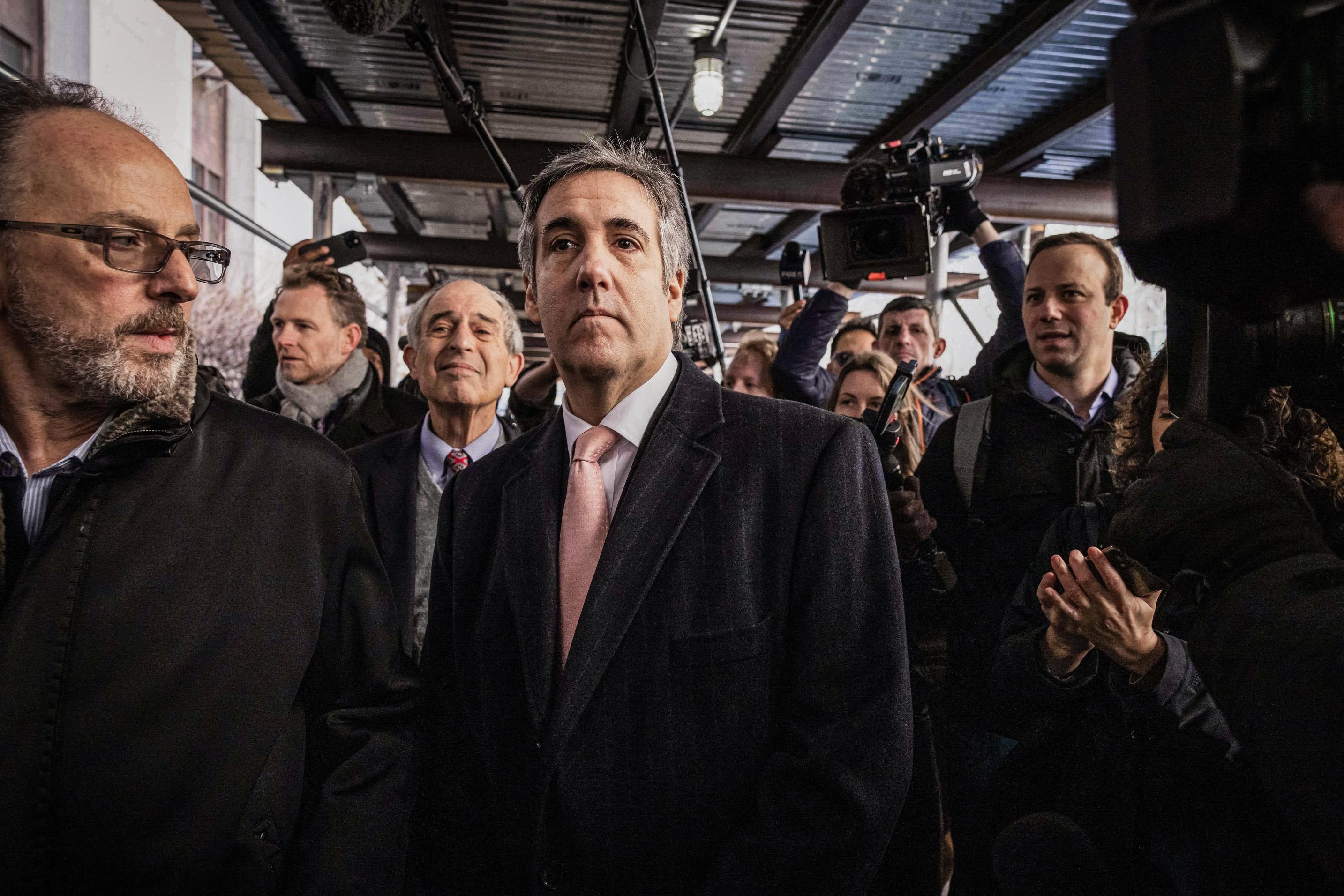
But in the trial now underway, prosecutors allege President Trump illegally falsified business records to conceal repaying Mr. Cohen for the “hush money.” This, they argue, constituted an illegal “campaign finance” contribution. But many lawyers and campaign finance experts disagree with that interpretation of the law.
7 Alleged Violations
On March 27, a day after Judge Merchan issued the gag order, President Trump described Mr. Cohen and Ms. Clifford as “two sleaze bags who have, with their lies and misrepresentations, cost our Country dearly!”President Trump wrote that on Truth Social as he thanked Ms. Clifford’s former lawyer, Michael Avenatti, for a social media post denouncing the gag order. Mr. Avenatti said it was wrong to silence President Trump while leaving Mr. Cohen and Ms. Clifford free to bash the 45th president in “countless TV interviews,” social media posts, and money-making “bogus documentaries.”
Those include sharing an article in which Mr. Turley discussed Mr. Cohen, although President Trump made no additional comments. His lawyers argued that they believed the order should permit such a post to counter Mr. Cohen’s verbal attacks.
Although the order banned President Trump from making public statements about probable trial witnesses “concerning their potential participation in the investigation or in this criminal proceeding,” it did not address whether he could share posts from others.
Judge Broadens Order
In another aspect of the controversy, President Trump mentioned Judge Merchan’s daughter in two posts, without naming her.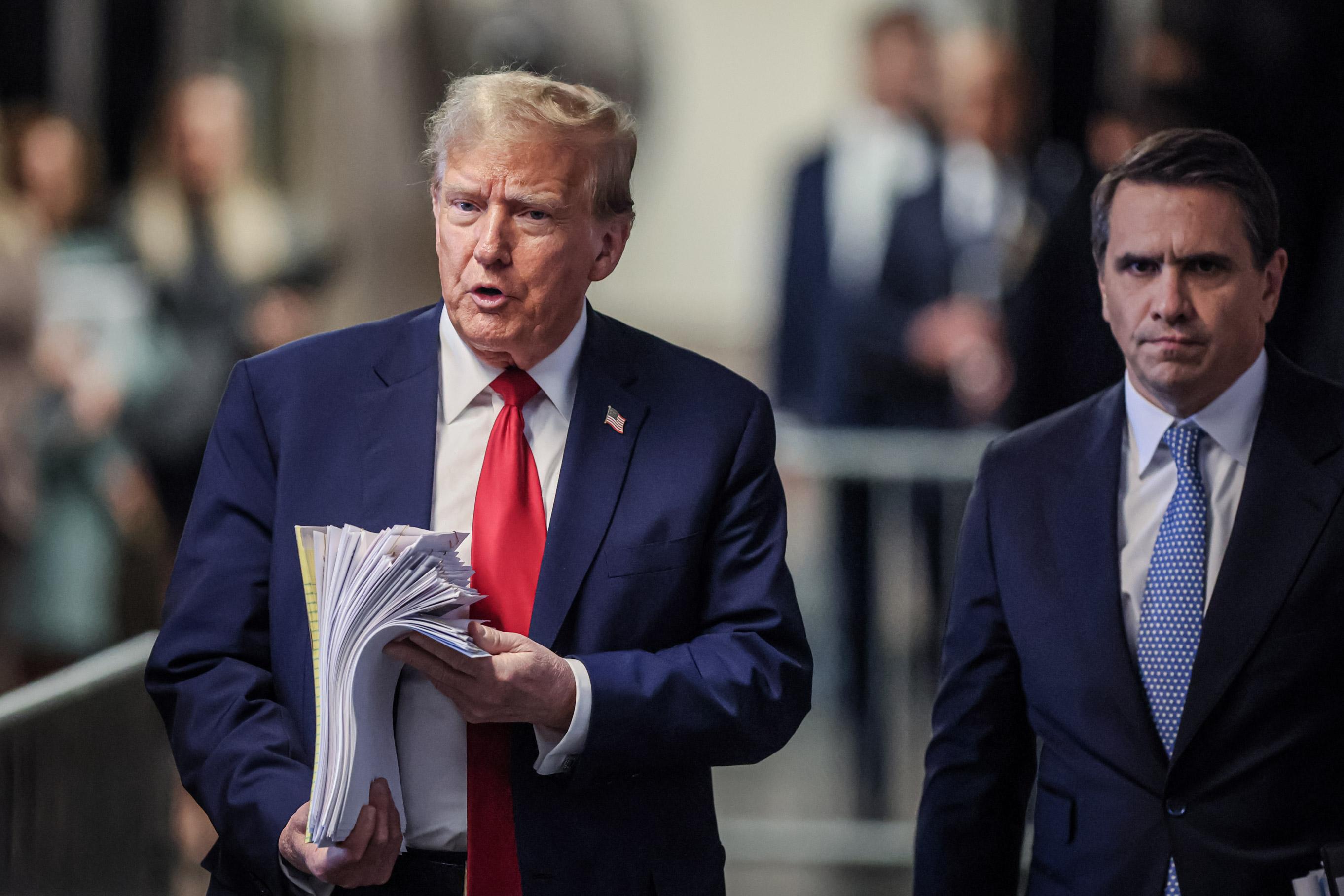
In a motion seeking the judge’s recusal, Trump attorneys detailed political activities connected to Ms. Merchan’s firm, alleging these create an “appearance of impropriety” for the judge.
In the post, President Trump stated that the judge’s daughter “has just posted a picture of me behind bars, her obvious goal, and makes it completely impossible for me to get a fair trial.”
“This pattern of attacking family members of presiding jurists and attorneys assigned to his cases serves no legitimate purpose,” Judge Merchan wrote. “It merely injects fear in those assigned or called to participate in the proceedings, that not only they, but their family members as well, are ‘fair game’ for Defendant’s vitriol.”
Judge Merchan said the order bars President Trump from “making or directing others to make public statements” about several categories of people, including jurors, prospective jurors, witnesses, opposing lawyers, staff members of the court, or Mr. Bragg’s office.
Rights Disputed
Mr. Davis, the Article III Project founder, opined that the judge mischaracterized President Trump’s remarks about Ms. Merchan when he described them as “attacks.”He thinks President Trump was justified to raise concerns about Ms. Merchan’s professional role.
“The judge responded by expanding the gag order illegally, unconstitutionally,” Mr. Davis said. “It’s very dangerous that a criminal defendant gets punished and gets smeared as causing violent threats for merely raising evidence of a judge’s bias on his criminal case.”
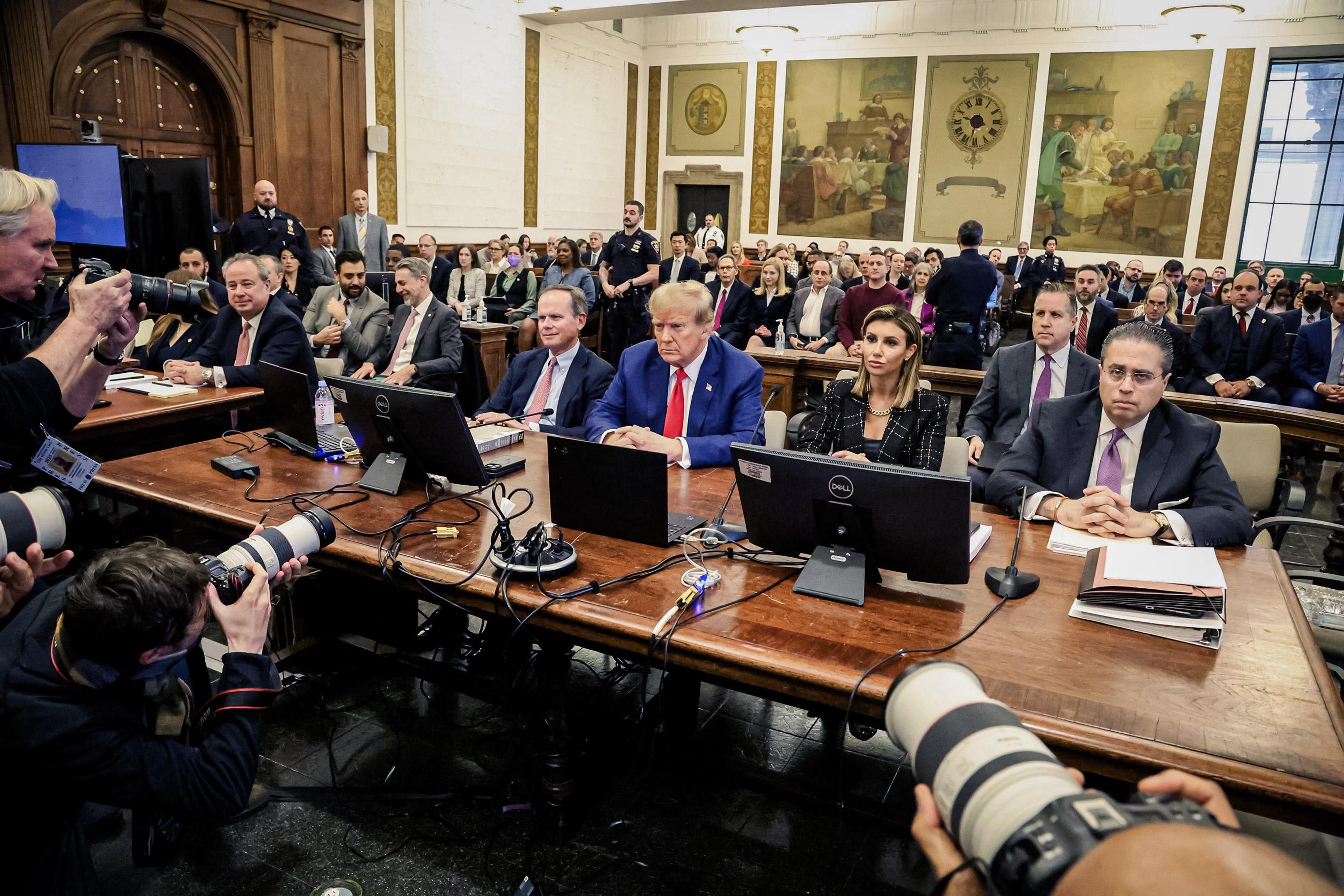
Further, Mr. Davis argues: “The purpose of a gag order is to protect criminal defendants’ rights; it’s not to protect the government. You do not gag criminal defendants. It is un-American.”
He asserts that the gag order against President Trump violates his rights under the 1st, 6th, and 14th amendments.
Those amendments guarantee rights to speak freely; to undergo a fair and legitimate public trial on any criminal accusations; and to be afforded “equal protection of the laws” without being deprived of “life, liberty, or property, without due process of law.”
Asked about reports of witnesses being reluctant to participate in President Trump’s trial, Mr. Davis said it’s “nonsense” for people to feel so intimidated by President Trump’s social media rants.
Democrats have repeatedly asserted that they are defending the “rule of law” and that the Trump prosecutions demonstrate that “no one is above the law.”
But Mr. Davis counters: “The Constitution is supposed to be a shield that protects us from the government. It is not a sword the government uses to come after us.”
He worries that government officials will start seeking gag orders more often because of President Trump’s case.
A billionaire and former president “has the resources and the bully pulpit to weather this storm,” Mr. Davis said. “Other defendants do not.”
He predicts that one or more cases involving President Trump will eventually land at the nation’s highest court.
He said the cases against President Trump seem to have been purposely brought in Democrat-dominated jurisdictions hostile to Republicans such as President Trump.
After President Trump was hit with dozens of criminal charges, his standing in opinion polls climbed. That’s why Jason Meister, a New-York based Trump advisory board member, thinks the effort to silence President Trump could also backfire.
“This toxic court may be successful in gagging President Trump, but it won’t be successful in gagging the millions of supporters that he has,” Mr. Meister said. “You can gag him on paper, but you’re actually amplifying his voice by doing that.”
Many voters applaud “Trump’s emphatic rejection of the prevailing narrative, his willingness to say and do things other candidates are afraid to so much as whisper under their breath,” Mr. Meister said.
